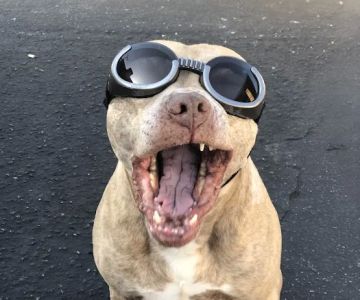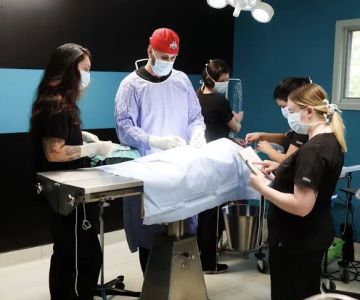How to Become a Veterinarian in the Military: A Comprehensive Guide
- Introduction to Becoming a Veterinarian in the Military
- Key Requirements for Becoming a Military Veterinarian
- Educational Pathway: From College to Military Service
- Specialized Training for Military Veterinarians
- Career Prospects and Opportunities in the Military
- Real-Life Stories: Veterinarians in the Military
- Conclusion and Next Steps
Introduction to Becoming a Veterinarian in the Military
If you’re passionate about animals and considering a career that combines both your love for veterinary medicine and your interest in serving your country, becoming a veterinarian in the military could be the perfect path. The military offers unique opportunities for veterinarians to work with service animals, wildlife, and even in combat zones, providing vital support to the health of animals that assist our armed forces. I’ve always admired the role veterinarians play in the military, and I’ve learned a great deal about how to become one. In this guide, I’ll walk you through the necessary steps and provide insight into what it’s like to work as a military veterinarian.

1225 Warren Ave, Downers Grove, IL 60515, USA
See DetailsKey Requirements for Becoming a Military Veterinarian
Becoming a veterinarian in the military is a rewarding but competitive career choice. The military needs qualified veterinarians to care for a wide range of animals, including working dogs, horses, and livestock, as well as for public health and disease control purposes. Below are some of the essential requirements you’ll need to meet if you’re looking to pursue this career.
1. Education
To become a veterinarian in the military, the first step is earning a Doctor of Veterinary Medicine (DVM) degree from an accredited veterinary school. Admission to veterinary schools can be highly competitive, and a strong academic background in biology, chemistry, and animal sciences will be beneficial. If you have a passion for animal health and science, this step will be an exciting challenge. Upon graduation, you’ll need to pass the North American Veterinary Licensing Exam (NAVLE) to practice as a licensed veterinarian.
2. Military Officer Requirements
In addition to being a licensed veterinarian, you must meet the military’s officer requirements. This means you’ll need to complete officer training and meet physical and age requirements. Military veterinarians often serve as officers, so you’ll need to demonstrate leadership skills and a willingness to follow orders in high-pressure environments.
Educational Pathway: From College to Military Service
The journey to becoming a veterinarian in the military involves several key educational steps, starting with undergraduate studies. Most aspiring veterinarians pursue a degree in animal science, biology, or a related field. Once you complete your undergraduate degree, you’ll apply to veterinary school, which typically requires four years of study. After earning your DVM, you can then enter the military either through direct commissioning or by participating in military veterinary programs that offer financial assistance in exchange for service.
1. Undergraduate Degree
Most military veterinarians start with a bachelor’s degree in animal science, biology, or a similar field. During this time, it’s important to focus on courses in animal health, chemistry, and biology, as these will form the foundation of your veterinary education.
2. Veterinary School
After completing your undergraduate degree, the next step is veterinary school. This program typically lasts four years and provides extensive training in animal medicine. During this time, you’ll learn everything from basic veterinary practices to specialized skills in surgery, diagnostics, and emergency care.
Specialized Training for Military Veterinarians
Once you’ve completed your veterinary education and training, becoming a military veterinarian involves additional specialized training. The military provides various training programs for veterinarians, including military-specific courses that cover handling military working dogs, performing triage in combat zones, and understanding the health risks that arise in military settings.
1. Officer Training School
As a military veterinarian, you will need to complete Officer Training School (OTS) in order to meet the officer requirements. This training focuses on leadership, discipline, and military protocols, and will prepare you for life in the armed forces. You will learn everything from how to lead a team to how to navigate military structure and handle stress in the field.
2. Veterinary Corps Training
After officer training, military veterinarians undergo specialized training in the Veterinary Corps. This includes practical experience working with military animals and learning about the unique challenges veterinarians face in military environments. You will receive training on topics such as military canine care, large animal medicine, and public health initiatives related to disease control.
Career Prospects and Opportunities in the Military
Once you’ve completed your training, you’ll be ready to embark on an exciting and rewarding career as a military veterinarian. Military veterinarians are in high demand, with opportunities to serve in a variety of locations, both domestically and internationally. Some military veterinarians work directly with military animals, while others focus on areas such as public health, biosecurity, and disease prevention.
1. Working with Military Animals
One of the most fulfilling aspects of being a military veterinarian is the opportunity to work with military working dogs. These dogs play a crucial role in security, bomb detection, and search-and-rescue operations. As a veterinarian, you’ll be responsible for keeping these animals in top health, which is a vital part of their success on missions.
2. Public Health and Disease Control
Military veterinarians also play a key role in ensuring the health and safety of military personnel by preventing the spread of diseases that could impact both humans and animals. This could involve tasks such as managing animal diseases, ensuring food safety in military dining facilities, and protecting soldiers from zoonotic diseases.
Real-Life Stories: Veterinarians in the Military
One story that stands out to me is that of Dr. Erin, a U.S. Army veterinarian who served in Afghanistan. She worked directly with military working dogs, providing them with necessary care and ensuring they were healthy and ready for deployment. Dr. Erin’s role was not only vital for the health of the dogs but also for the safety of the soldiers. Her story showcases the impactful work that military veterinarians do and the unique opportunities the field offers.
Conclusion and Next Steps
If you’re passionate about animals and interested in serving your country, becoming a veterinarian in the military can be an incredibly fulfilling career path. It requires dedication, strong academic performance, and a willingness to serve, but the rewards are numerous. From working with military animals to contributing to the public health and safety of military personnel, the role of a military veterinarian is both impactful and deeply rewarding. Start by focusing on your educational goals, gaining the necessary qualifications, and seeking out military veterinary programs that offer support and opportunities for advancement.










